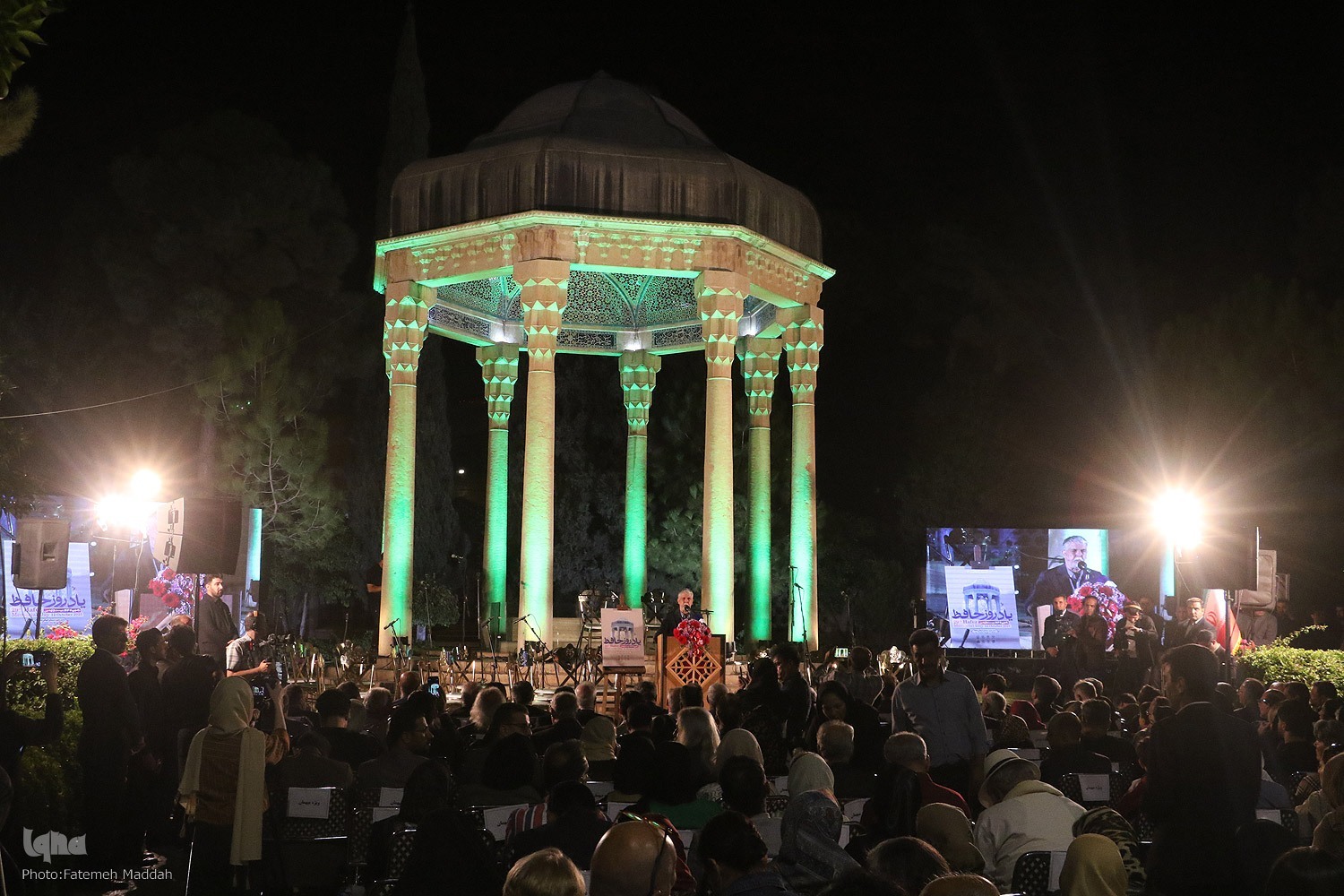Minister Describes Hafez as Essence of Islamic-Iranian Spirituality

Seyyed Abbas Salehi, Iran’s Minister of Culture and Islamic Guidance, made the remarks on Saturday, during the official ceremony marking Hafez Day at the poet’s mausoleum in Shiraz.
Hafez Day is celebrated annually in Iran to honor the 14th-century Persian poet, whose works are widely read and whose influence extends far beyond Iran.
Salehi began by noting that poetry has accompanied humanity since ancient times and called poetic expression one of the earliest forms of human art.
He referred to Hafez as a “poet of humanity” and a symbol of the harmony between mysticism, wisdom and intellectual freedom in Iranian culture.
“Divan-e-Hafez is the distilled essence of Iranian-Islamic mysticism and spirituality,” he said.
Read More:
Salehi said great poets have emerged in many cultures, but among the top twenty poets in world history, five are Iranian: Ferdowsi, Rumi, Khayyam, Saadi and Hafez. Among them, Hafez stood out for achieving international recognition during his lifetime.
He quoted German poet Goethe, who said Hafez’s words are “as great as eternity,” and asked why Hafez’s poetry became universal. He argued that Hafez must not remain merely a cultural monument but should continue to represent Iranian and Islamic identity.
“Hafez was a multi-dimensional figure who attracted people from every perspective,” he said. “In every corner of the world, readers found something of themselves in him.”
One reason for his timeless relevance, Salehi said, is his spiritual depth.
Before Islam, Iran had its own mystical tradition, and with the arrival of Islam, a new form of spirituality emerged. Hafez, he said, “united these worlds within himself.”
He explained that approaching the Divan feels like connecting to “an endless ocean of meaning and knowledge.”
The title Lisan al-Ghayb (“Tongue of the Unseen”), given to Hafez, reflects his perceived connection to the divine.
Watch:
Salehi also highlighted the “miraculous” nature of Hafez’s language, saying that aside from the Quran and the sayings of the Prophet’s Household, “no Persian expression equals his.” Even those who do not know Persian, he said, are captivated by Hafez’s metaphors, ambiguity and layered language.
He emphasized that Hafez was not only a poet of mysticism. “Hafez was free and free-thinking, opposed to fanaticism and hypocrisy,” he said, noting that many Western readers first discovered Hafez through this spirit of freedom.
Hafez was also a philosophical thinker who addressed existential and spiritual questions, Salehi said.
“His poetry still speaks to the intellectual and metaphysical concerns of modern humanity.”
“Shiraz is fortunate to have given birth to Hafez,” Salehi concluded. “He does not belong to one era but to the eternal heritage of humankind.”
4310133



